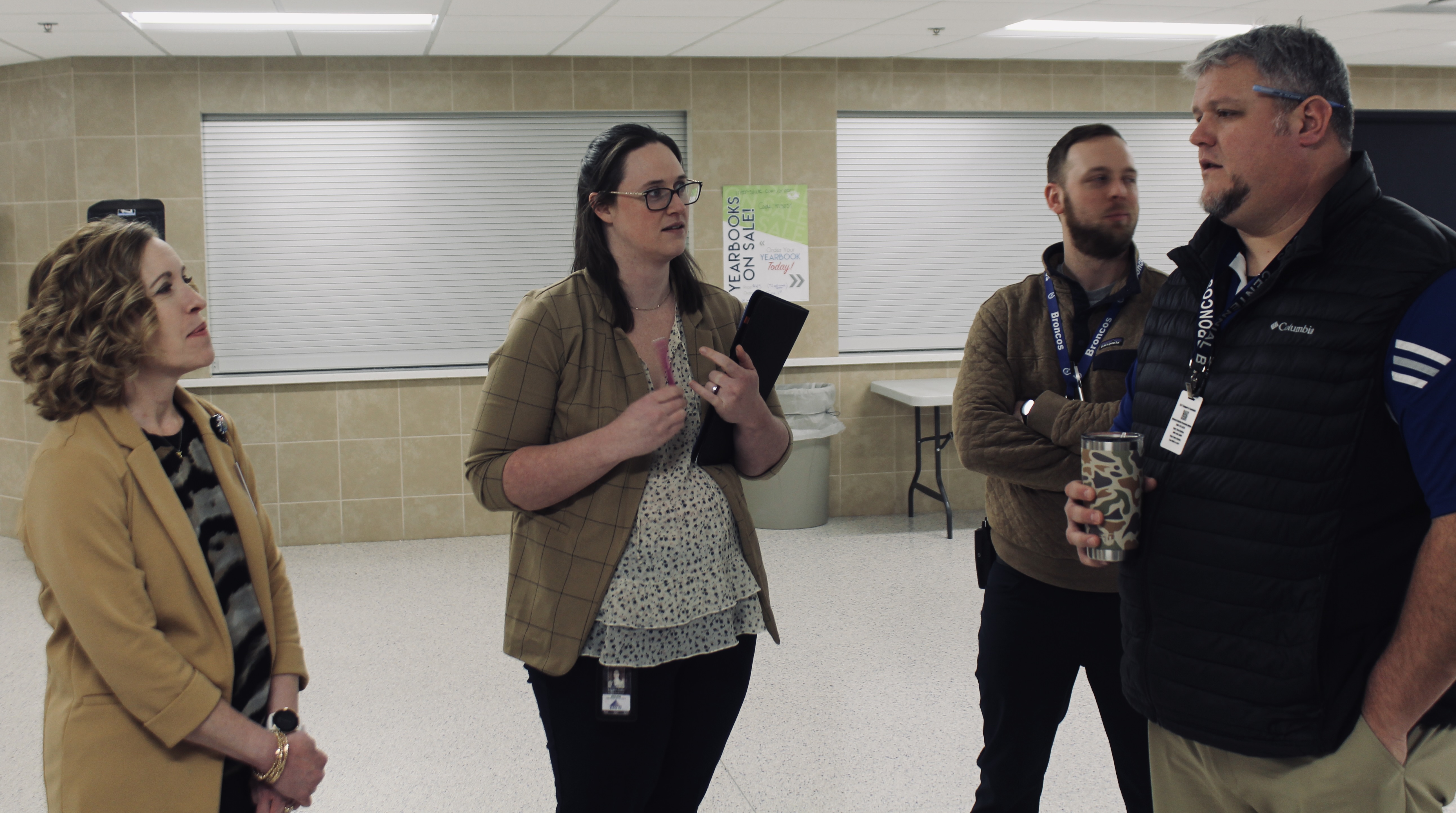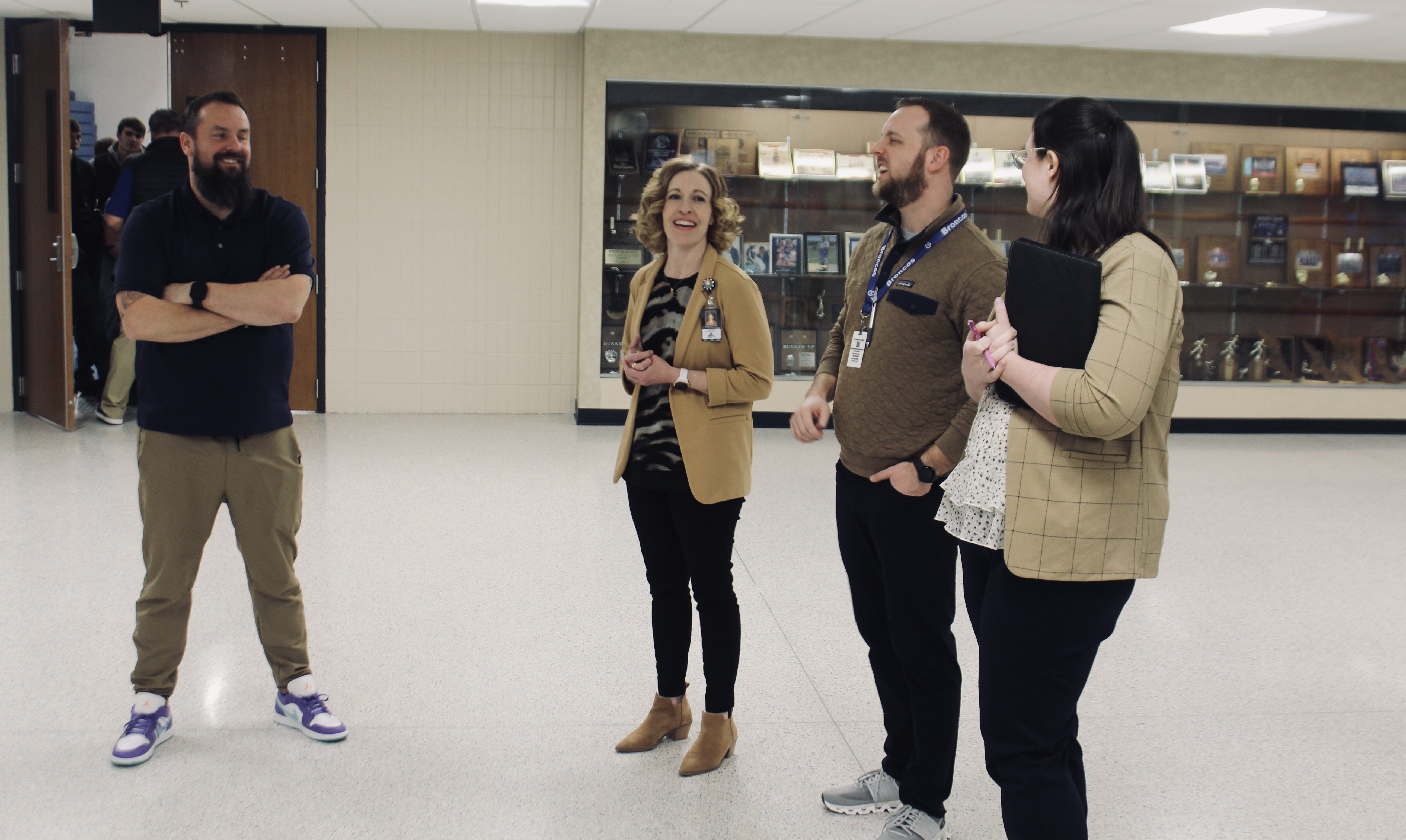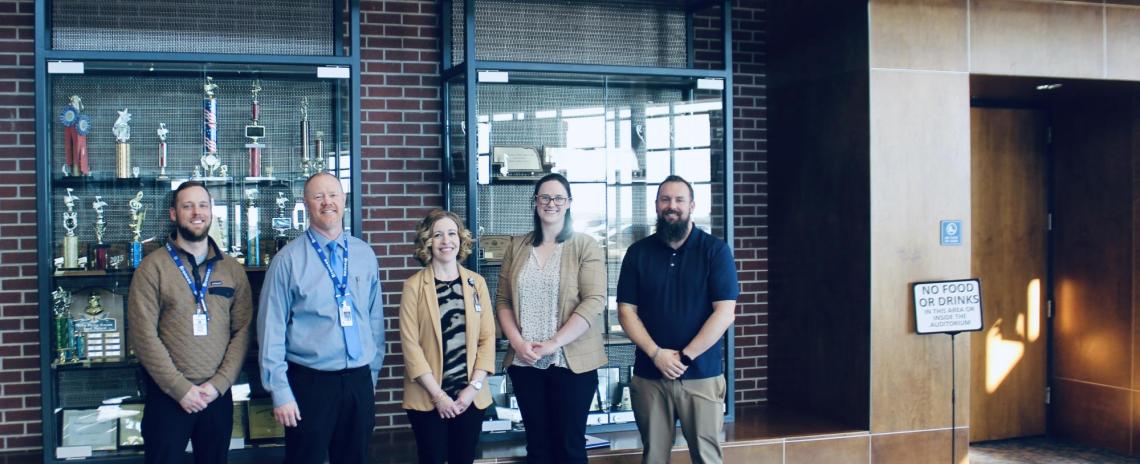From One Service Unit to Another: ESU 11 staff visits schools in Seward County for a firsthand look at Wellness 4 All model
From One Service Unit to Another: ESU 11 staff visits schools in Seward County for a firsthand look at Wellness 4 All model
By Tyler Dahlgren
They’re standing at the foot of something exciting, but before Lona Nelson, April Overholser and Logann Collin embark on a reimagining of ESU 11’s mental health services they ventured east to Seward County for a firsthand look at one of Nebraska’s benchmark programs.
We’ve written of the ESU 5 mental health team and their innovative Wellness 4 All model often through the years. We’ve seen it in action in places like Milford, Fairbury, Beatrice and Freeman, just to name a few. On a Monday and Tuesday in late January, the ESU 11 trio came from their offices in Holdrege to do the same.
“Through my relationship with (ESU 5 Director of Mental Health & Wellness) Jen McNally and understanding the impact that a more comprehensive, school-based approach to mental health makes in that school district’s climate and culture, we felt it was really beneficial to learn how to expand some of the services that we are offering,” said Nelson. “I reached out to Jen, and we had a conversation about coming down and simply observing and asking questions.”
ESU 11 was able to hire Collin, their only mental health provider, after receiving some grant funding last year. She’s been serving two districts, two days each week, though it became apparent pretty quickly that that wasn’t going to be enough to meet the collective needs of the 13 districts ESU 11 exists to serve.
“We started looking at how we were going to expand our services, which I think is something that we were able to take from our two days meeting with the ESU 5 team in the Seward County schools,” said Collin. “They’ve found a way to really make the services sustainable, which is what every district is looking for. That’s really what our goal is moving forward, to set up a program similar to theirs and to find a way to grow it while keeping it affordable for schools in our districts.”

The visit began over lunch inside a conference room at Centennial, where the salad bar is the stuff of legend. Collin and Overholser came with the questions, and McNally and mental health clinician Cole Stark were excited to answer every one. The meeting set the table for the next two days.
“Having the opportunity to then get to visit with the districts and see things in action, and to get to hear from all the different administrators, teachers, students and clinicians themselves, that was very inspiring,” Overholser said. “We were very excited for that opportunity and we came home invigorated. It was two days well-spent.”
Wellness 4 All is a school-based approach to mental health, and McNally’s team sees every interaction as an intervention. They’re not of the belief that a student should require a diagnosis to need help. It’s okay to not be okay, they say, and the kids who often utilize their services the most are some of the most high-achieving and involved students in school.
”As we walked the halls and talked to the students and staff members, teachers who were also parents and could speak to the benefits that it's had for their own children, you could see the pride that they all have taken in this,” said Overholser. “They’ve taken pride in wanting to provide for the needs of their kids and to make sure that everyone is feeling valued and feeling supported, not just in the academic piece, not just educationally, but as a whole person. That was neat to see.”
The group spent Tuesday touring the hallways of Milford, and then spent the three-hour drive home that afternoon brainstorming. It was an energizing dose of collaboration, and they couldn’t wait to get to work.
“The three of us have worked really hard, even in the week since that visit, because we definitely feel like we’ve got a fire lit under us now to build something we know can be amazing,” Collin said.
They know they’ll have to put their own spin on it to cater to their districts and their dynamics, but the meeting of the minds in Centennial and Milford was a good start.
“We know we can’t duplicate it exactly,” said Nelson. “But how do we look at the core of what that Wellness 4 All model represents and how do we utilize each of our areas of expertise to build something that will help support our districts?”
That’s where the fun starts, and discovering answers to that question has been the most enjoyable part of working for a service unit, said Collin.
“There’s a tremendous amount of impact you can make working for an ESU that serves such rural districts, and that’s important because mental health resources are so scarce in our area,” she said. “You're looking at having to travel an hour to two hours to receive any kind of mental health services outside of the school. Being able to support students and communities through that wider lens is one of my favorite pieces.”



